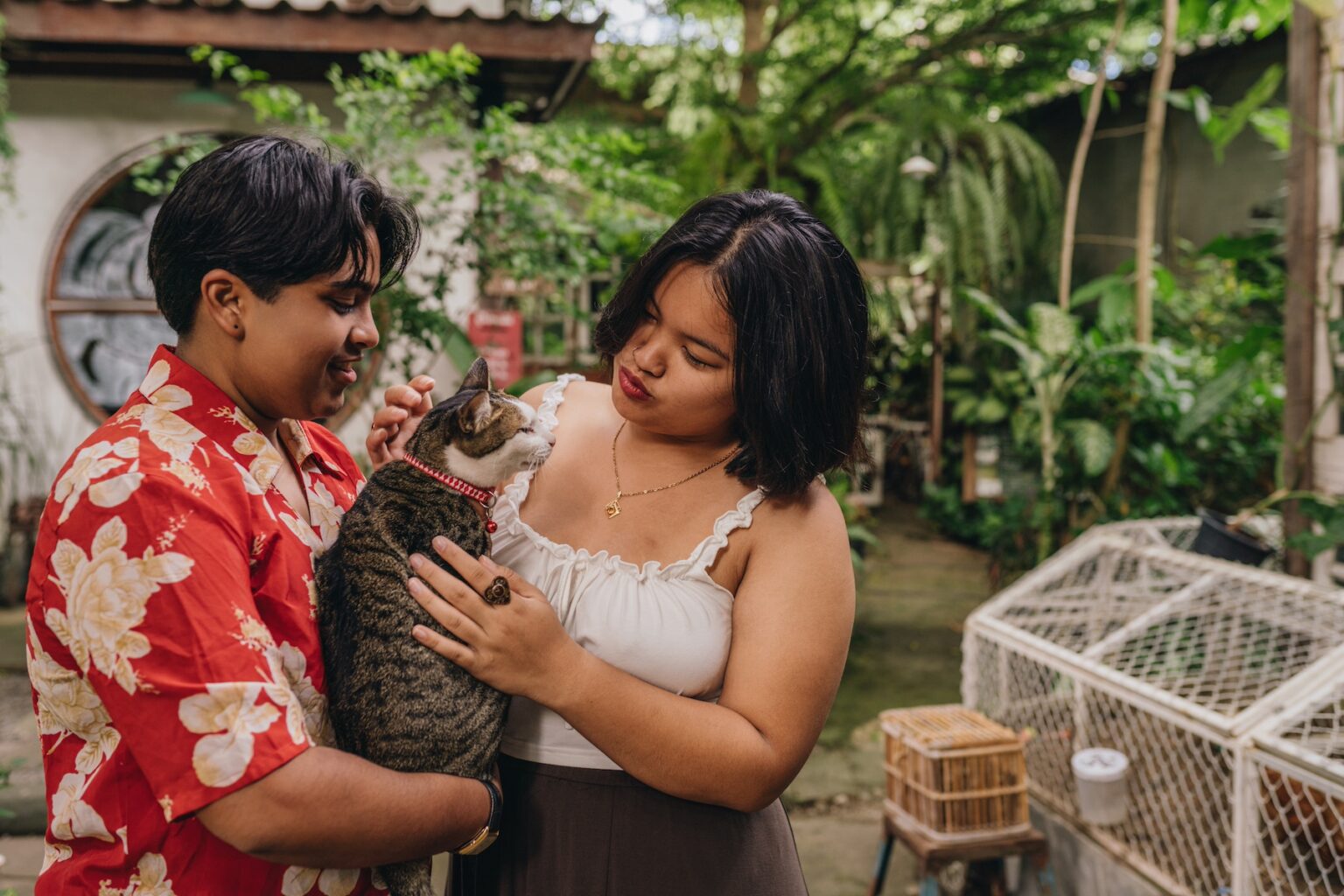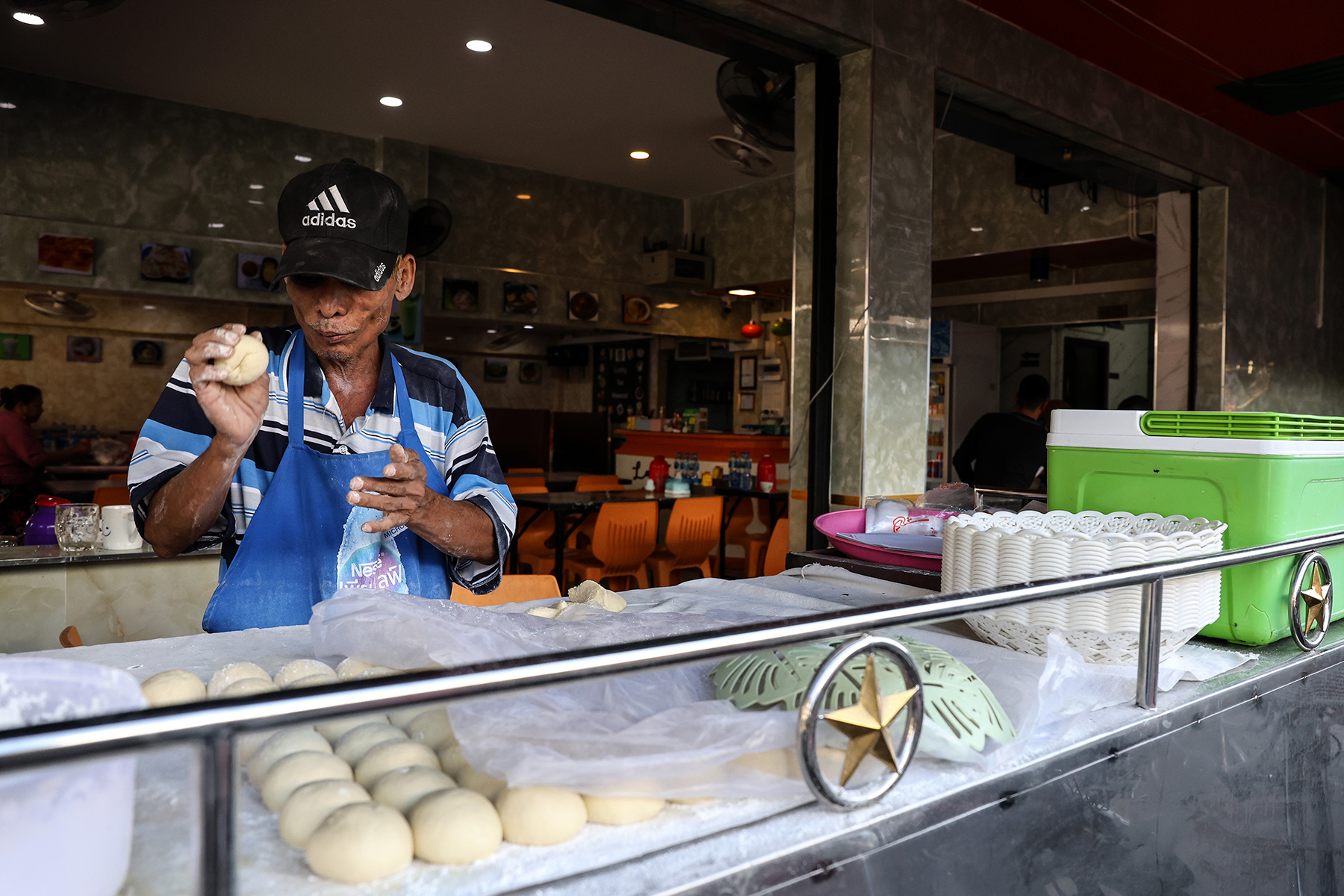Expats know that life in a different country can be lonely at times. That’s why dogs, cats, rodents, and reptiles make excellent friends, keeping you company in your new home and even joining your adventures.
Luckily, in a pet-friendly country like Thailand, having an animal companion doesn’t have to be complicated. Whether you’re looking to adopt, foster, or bring your current furry friend when you move, you’ll want to learn about keeping pets in Thailand.
Keep reading for more information on these topics:
- An overview of Thai pet culture
- Pet ownership in Thailand
- Can you bring or import your pet to Thailand?
- Do you need a Thai pet passport?
- Should you purchase pet insurance in Thailand?
- Thai pet healthcare
- Pet shops in Thailand
- Thai pet services
- Lost pets in Thailand
- How much does it cost to have a pet in Thailand?
- Selling a pet in Thailand
- Rehoming a pet in Thailand
- Useful resources
An overview of Thai pet culture
Pets are a big deal in Thailand. The nation’s pet industry is the second largest in Asia, only behind China. Dogs are the most popular pets in Thailand, followed by cats, though birds, fish, and rodents are also familiar sights. Many experts predict that Thailand’s booming pet industry will continue to rise, as 49% of Thais say they’d rather adopt a pet than have a child.

In Thailand, you might hear talk of “pet humanization” on the news or in the streets. This phrase is used to describe the changing nature of the country’s pet industry. More people are bringing dogs and cats into their homes, and their attitudes toward pets are evolving.
Thais are increasingly likely to pamper their pets, buying organic dog food, premium products, and nutritional treats. With the increasing number of pets nationwide, animal welfare seems to be rising.
On the other hand, there are still around 300,000 street dogs (สุนัขข้างถนน) living in Bangkok alone. Life for stray animals in Thailand can be brutal. Trading dog meat is illegal, but smugglers round up stray canines and sell them to dealers in Vietnam or China.
The Soi Dog Foundation, one of the country’s biggest animal charities, is dedicated to stamping out this illicit trade. It also runs spaying and neutering campaigns and helps people adopt homeless dogs.
What pet laws does Thailand have?
Thailand is not very strict when it comes to pet or animal control laws. There are no dog licenses, and spaying and neutering is not mandatory. The country has no regulations on breeding pets. Dog owners are not obliged to keep their pets leashed.
However, if you fail to control your dog and it harms someone, you could face a fine. You may also have to pay up if your dog is loud enough to disturb the neighbors regularly.
Thailand introduced its first animal cruelty law in 2014 that forbids the neglect and torture of animals. Offenders can be fined up to ฿40,000 and sentenced to up to two years in prison. However, this may not be far enough as cockfighting and similar activities remain legal, and the definition of neglect is not very clear.

As far as allowing pets in rented homes, expats should check with their landlord or rental contract first. Some condominiums only permit small dogs, while others ban all canines. Even small pets are banned in some housing units. Owners who disregard these regulations could face steep fines.
Pet ownership in Thailand
If you feel that your home in Thailand isn’t complete without a pet, you have plenty of options.
Buying pets
There are no regulations when it comes to buying pets in Thailand. In theory, you can decide you’re in the mood for a new puppy or kitten, head down to the nearest shopping mall or even a street market, and return home with a four-legged friend. You won’t have to show any ID, and the entire transaction could be over in minutes.
In practice, this is not a good option for responsible animal lovers. Puppy mills supply the country’s pet shops. Dogs live in extremely harsh conditions, and cruelty is commonplace. Moreover, buying a bargain puppy or kitten from a pet shop or market means you have no idea about its lineage or health conditions. Parvo and FIV (feline immunodeficiency virus) are common in animals from questionable breeders.
Cheap puppies may cost as little as ฿2,000. If you’d rather look for a more ethical breeder, you should be prepared to pay at least 10 times more. Start your journey by searching on Dogilike, but be warned. You’ll probably still need to put a fair amount of work into researching the breeder, as pedigree puppies are a big business in Thailand, and scammers and puppy mills are sadly prevalent.
Thailand has many stray and homeless dogs and cats, so there is no need to support puppy mills. It is easy to find a pet that needs a loving home. You can find puppies, kittens, and other pets that need homes via social media. They are less likely to suffer from the severe congenital health defects that plague pedigrees. Furthermore, adopting is rewarding, and your new pet will be ever grateful.
Reputable breeders will microchip (ไมโครชิป) your puppy before selling it and provide you with a vaccination booklet, health certificate, and blood test report.
Pet rescue services and adoption
Adopting a Thai street dog is an excellent alternative to buying. The country’s soi dogs (strays) are common everywhere, from big cities to tiny villages.
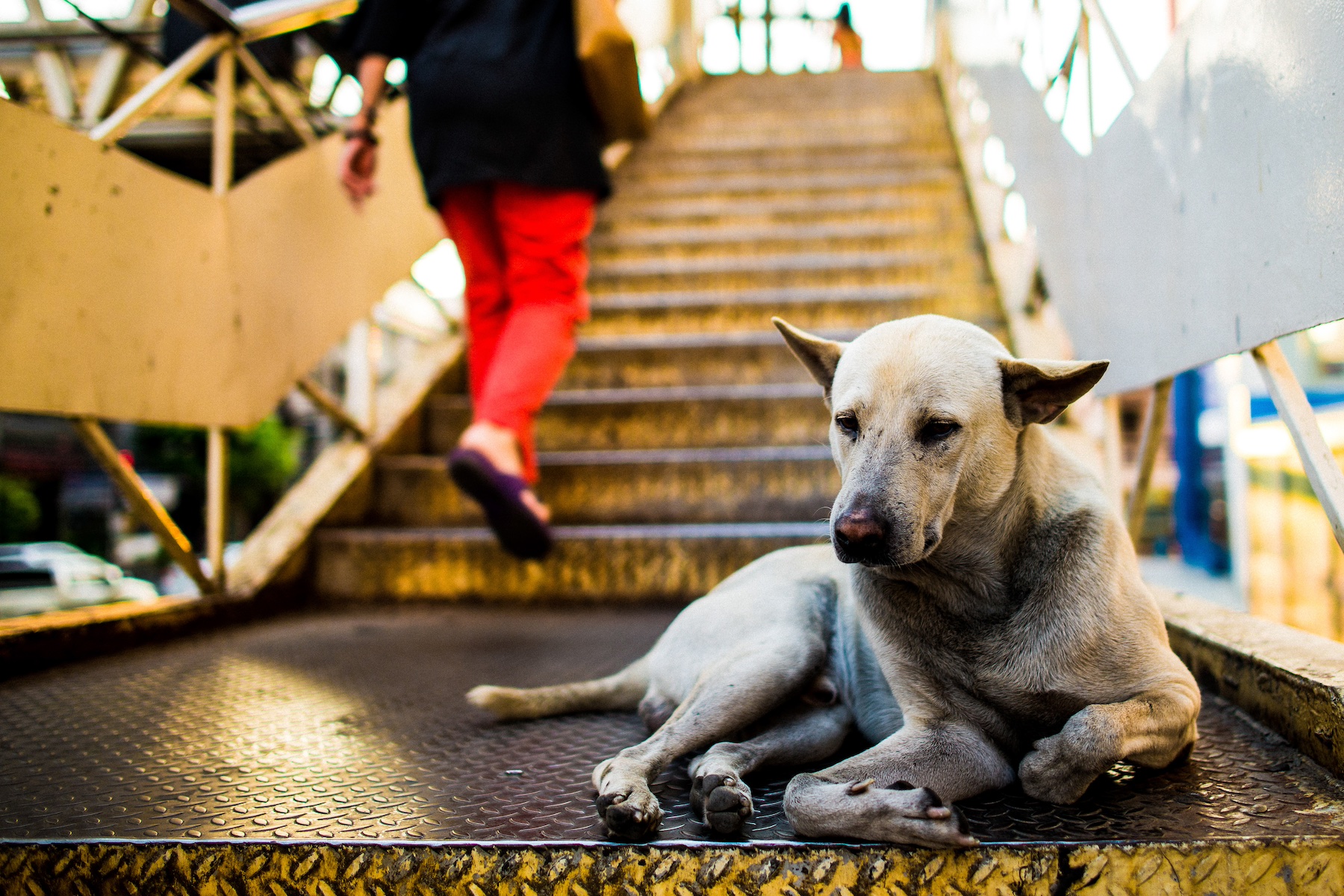
If you live rurally, you’ll find it easy to arrange an informal adoption. You’ll want to take your new pet to the nearest vet soon. It’s best to confine it to a single room in your home until it has a clean bill of health, as many strays have highly contagious infections like ringworm.
A few animal shelters (ศูนย์พักพิงสัตว์) exist in Thailand, including WKS Temple Dogs and the Soi Dog Foundation. The latter offers both cats and dogs for adoption. One advantage of adopting from a shelter is that your dog will be spayed or neutered and vaccinated. Adoptions are free, but a donation to the shelter will be more than welcome.
Fostering a pet
Some animal shelters in Thailand recruit foster parents for pets. If you choose to foster a pet, you’ll be looking after it temporarily before it moves on to its forever home.
You can foster dogs and cats at Rescue PAWS, while Adopt Meow Chiang Mai takes on foster families to care for cats needing extra support. Organizations favor experienced pet owners, as you’ll have to train your new pal and help it develop social skills. You may need to pay vet bills and sign some form of agreement. For example, if you’re fostering a cat, you’ll have to keep it indoors at all times.
If you’re interested in fostering an animal, contact nearby shelters. Even if they’re not looking for foster families at the moment, they might be able to put you in touch with other rescue organizations that are.
Can you bring or import your pet to Thailand?
Pet immigration rules and restrictions
Thailand’s pet import regulations are the same no matter which country you’re traveling from. Essentially, you’ll need a pet passport (หนังสือเดินทางสัตว์เลี้ยง) and a health certificate (ใบรับรองสุขภาพ), and your pet will have to be microchipped. A veterinary official will issue your import permit when you arrive at the airport in Thailand.
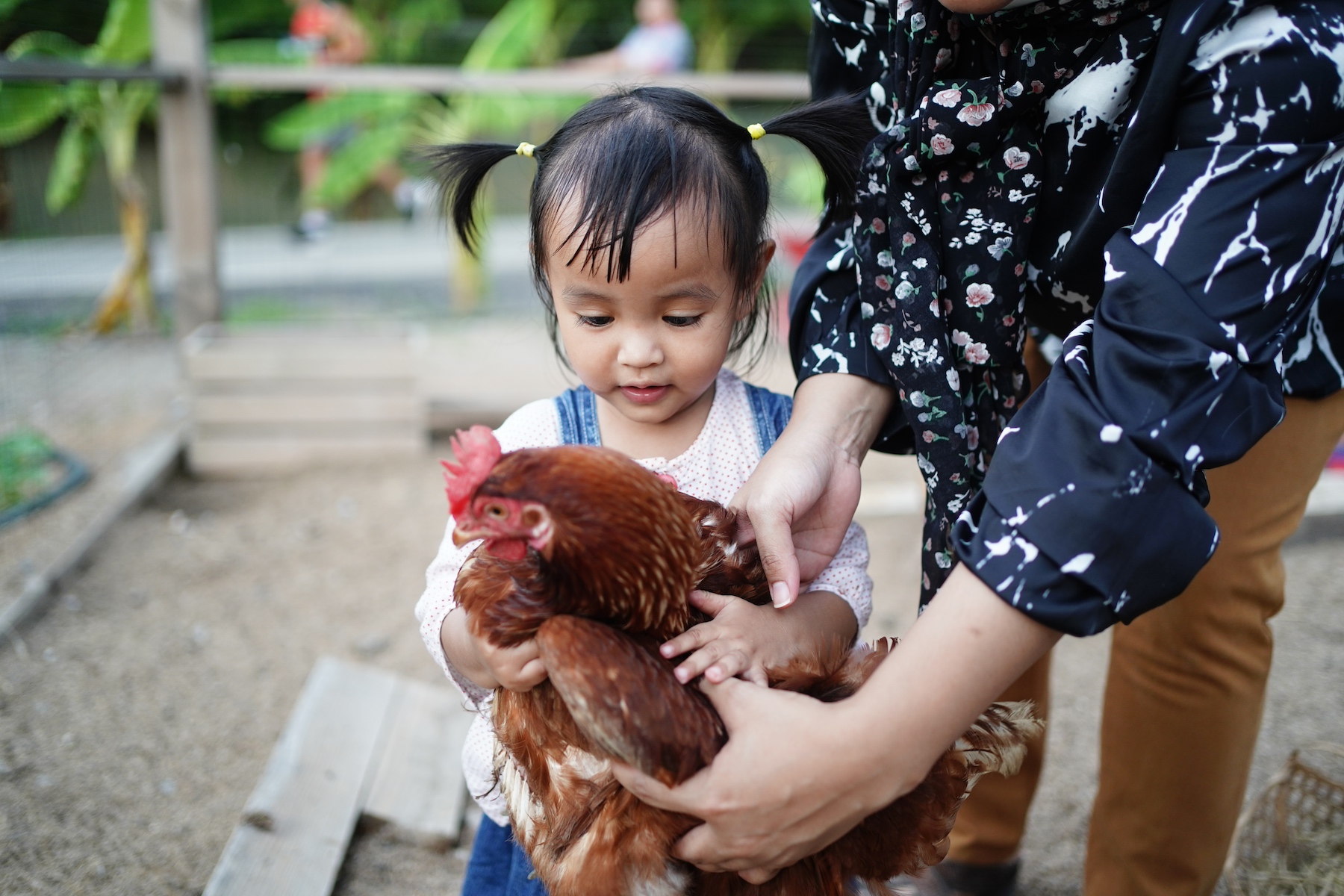
The health certificate is only valid for a 10-day window, so remember your travel dates when you make your appointment with the vet. You must have your pet vaccinated at least 21 days before travel. Dogs must be vaccinated against rabies, leptospirosis, distemper, hepatitis, and parvovirus, while cats need rabies and FPV vaccines.
Your pet must be at least four months old to travel to Thailand. You cannot bring certain dog breeds, notably the American Staffordshire Terrier, Pit Bull Terrier, and similar types, into the country. No breed-specific legislation covers these dogs who already live in Thailand, but imports are forbidden.
Traveling with pets
As Bangkok is a popular tourist destination, many airlines fly there from around the world. Each airline sets restrictions on pet travel, so be sure to contact airlines before traveling with a pet to check their exact rules.
Thai Airways allows you to treat your dog or cat as excess baggage, so they’ll travel in the aircraft’s hold. You will need to supply a secure travel case. Only registered guide dogs and assistance dogs can travel with you in the cabin.
Like many airlines, Thai Airlines does not permit snub-nosed (brachycephalic) dog or cat breeds because they can experience breathing difficulties in the air. Airlines usually also have a weight restriction, so very large dogs cannot travel by plane. Instead, you’ll have to ship your animal as cargo. Check shipping dates carefully, remembering that your pet’s health certificate is only valid for 10 days.
Pet arrivals
If you have experience relocating pets worldwide, you may be used to required quarantine periods. Things operate differently in Thailand. After you and your pet arrive at the airport, you must go to the animal customs (ศุลกากรสัตว์) desk for inspection and to complete the necessary paperwork. Be prepared to pay ฿500 for the import license, ฿1000 for import duty, plus a little extra for the other forms.

Technically, Thai officials can quarantine a pet for up to 30 days. However, if all your papers are in order and your pet shows no signs of ill health, you can leave the airport together, ready to start your expat adventure.
Do you need a Thai pet passport?
Once your pet is in Thailand, you don’t need a license or pet passport.
However, if you plan to take your pet from Thailand to another country, you must apply for an export license. Your dog or cat must be at least four months old, microchipped, and vaccinated. Depending on your destination country, your pet may also need to complete a rabies blood test.
Rabies-free and rabies-controlled countries consider Thailand to have a high risk. This means your pet may be subject to an extended quarantine on arrival from Thailand. As such, think carefully before traveling with your furry friend. If you’re visiting another country temporarily, it may be better to leave your pet with a petsitter rather than go through the export process.
Should you purchase pet insurance in Thailand?
Pet insurance (ประกันสัตว์เลี้ยง) is a pretty new concept in Thailand, but it’s steadily gaining popularity with the country’s pet owners. Companies such as Pet Friend offer insurance, with coverage of up to ฿200,000 available.
You can even insure pets in Thailand without microchips, but you’ll pay a bigger premium. If your pet has a history of illness or injury, most insurers will not cover them. Insurers usually calculate costs on a breed-by-breed basis, and some services are unavailable for particular breeds.
Thai pet healthcare
Veterinary services
There are plenty of veterinarians (สัตวแพทย์) in Thailand. However, it can be tricky to find one that speaks English. If you’re worried about the language barrier, you might want to contact your local animal shelter. Expats usually run these, so they will be able to point you in the direction of an English-speaking vet.
You won’t find the latest cutting-edge techniques in Thai veterinary practices, but vets here can deal with most of your concerns. Prices vary, and you should usually get a quote first. Expect to pay around ฿300 for a rabies shot, ฿1000 to 3000 for neutering or spaying, and ฿600 for an x-ray. If your pet needs surgery, you’ll need to pay at least ฿1500, with the price increasing depending on the complexity.
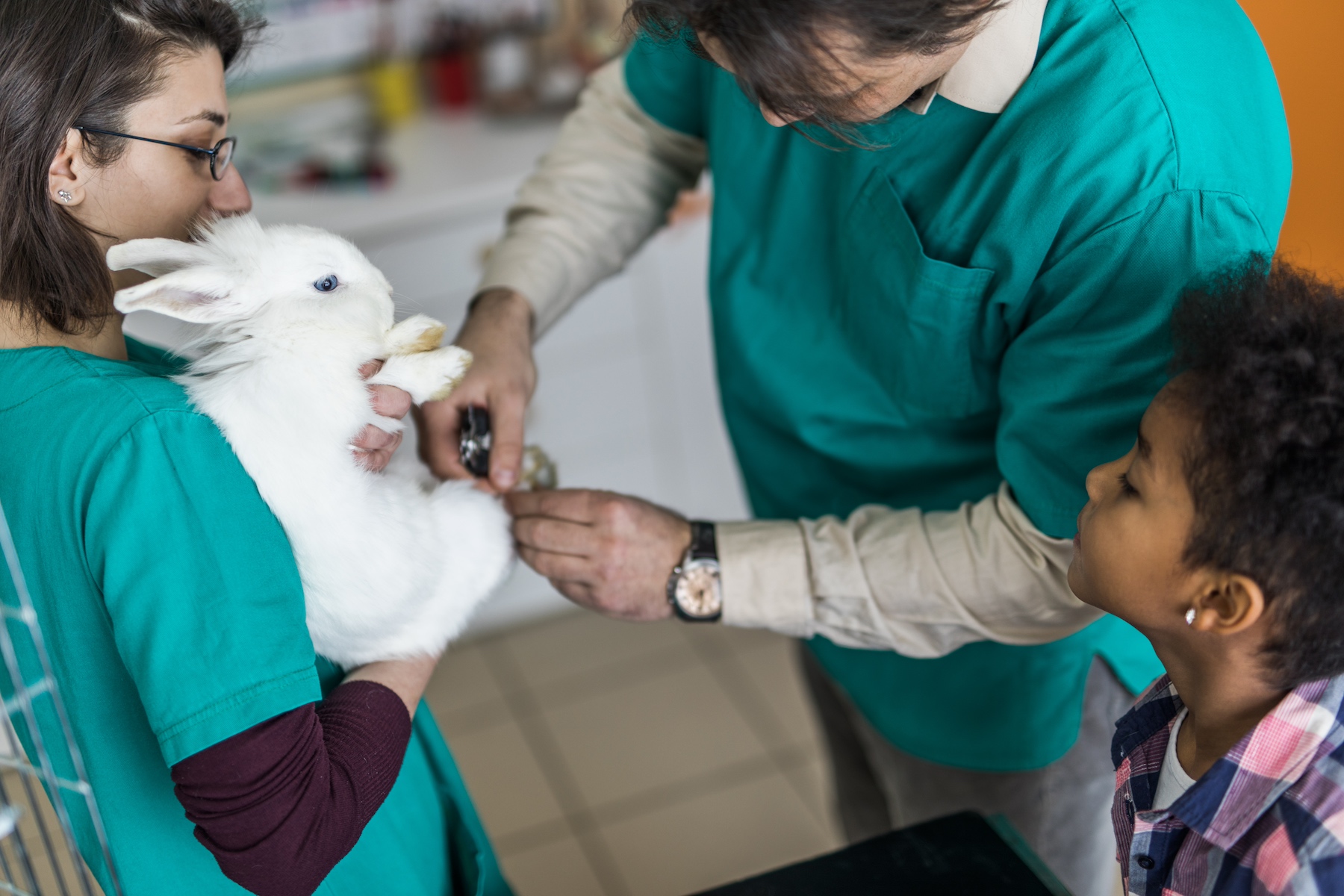
You’ll need to find a private pet clinic or animal hospital to help in an emergency. Thonglor Pet is a Bangkok-based animal hospital with several locations. Most of its doctors and some of its nurses speak English, and its emergency services are available 24/7. Premier Pet Hospital also offers house calls in the Bangkok area.
Vaccinations
Pets in Thailand do not have any mandatory vaccination schedule. As a responsible pet owner, you’ll still want to give your four-legged friend all the shots necessary to keep them healthy and happy.
Visit your vet to schedule vaccinations for leptospirosis, distemper, parvovirus, and hepatitis for dogs. For cats, you’ll want to ensure your feline gets a shot to prevent FPV.
Most important of all is the rabies vaccine. Both dogs and cats will need a booster against rabies every one to three years.
All of these vaccinations should be readily available at any veterinary clinic.
Neutering and spaying
There are no sterilization (การทำหมัน) laws for dogs or cats in Thailand. However, it is highly recommended unless you’re actively planning to breed. The exceptionally large number of stray animals in Thailand means that accidental pregnancies are highly likely.
Spaying and neutering tend to cost around ฿1000–3000. If you adopt a dog or cat from an animal shelter, the staff there will almost always spay or neuter it beforehand. You don’t need to pay them for this service, but donations will be welcome.
Pet shops in Thailand
There are pet stores (ร้านขายสัตว์เลี้ยงและอุปกรณ์สัตว์เลี้ยง) in Thailand to suit every type of animal and budget. You’ll find everything from market stalls to giant warehouses, and you’ll generally find a pet store in every mall.
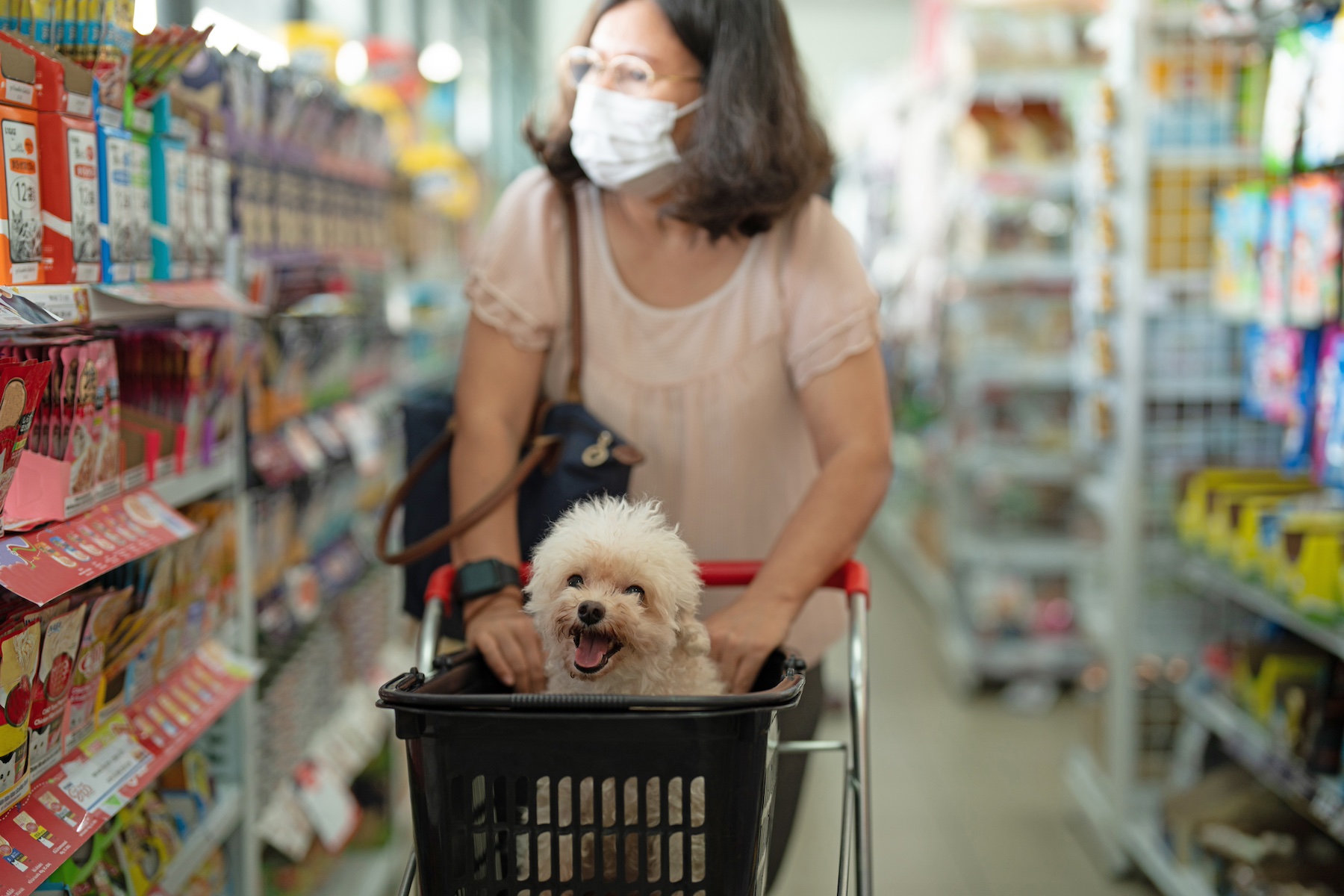
Some of Thailand’s pet stores operate as one-stop shops. For example, the Pet Lovers Centre chain has a pet pharmacy and grooming services. It also has a large online store, offering same-day delivery in many parts of the country.
The Pet Safari targets an upscale market and encourages shoppers to bring their pets for a day out. Its large shops are themed to look like African villages, and there are on-site grooming and spa facilities for pups and organic, freshly baked dog treats.
Thai pet services
With such a huge pet industry, Thailand has something to meet every pet owner’s desires. You’ll find grooming services, pet-sitting companies, kennels that will look after your pet when you go on holiday, pet portrait artists, and so on.
Some all-in-one services exist where pet lovers can enjoy a full, action-packed day. At Pets’ Ville in Bangkok, you’ll find a boarding service, grooming parlor, pool for water sports, agility courses, and more.
In Bangkok, there are also several pet taxi services, such as Pet Taxi by Noom. You will not be allowed to take animals on the BTS or MRT, and most regular taxi drivers won’t accept them, either. These pet taxi companies allow you to take your dogs around the city. To learn more about pet services in your area, you can download the MyFriend app for pet owners in Thailand.
Lost pets in Thailand
Thailand has no official numbers to dial for lost or found pets. If you lose a pet, your best bet is to put up posters around the neighborhood and alert people online. Facebook is the most popular social network in Thailand, and there are some pages where you can alert people about lost pets. It’s best to post in English and Thai to ensure you reach the widest audience.
If you find an assumed lost dog or cat, take it to the nearest vet and let them look for a microchip. Remember, though, the vast majority of dogs you see on the streets of Thailand are strays. Some shelters, such as the Soi Dog Foundation, will look after them if they are distressed.
A content, well-fed stray dog is not a problem in Thailand. Only contact a shelter if you see a stray needing medical attention, as they have limited resources available.
How much does it cost to have a pet in Thailand?
The exact cost of living with pets in Thailand will depend on a number of factors. Generally, dogs are more expensive than cats, while large dogs cost more than small dogs because they have to eat more. Most pets will be able to live comfortably on a fairly tight budget.
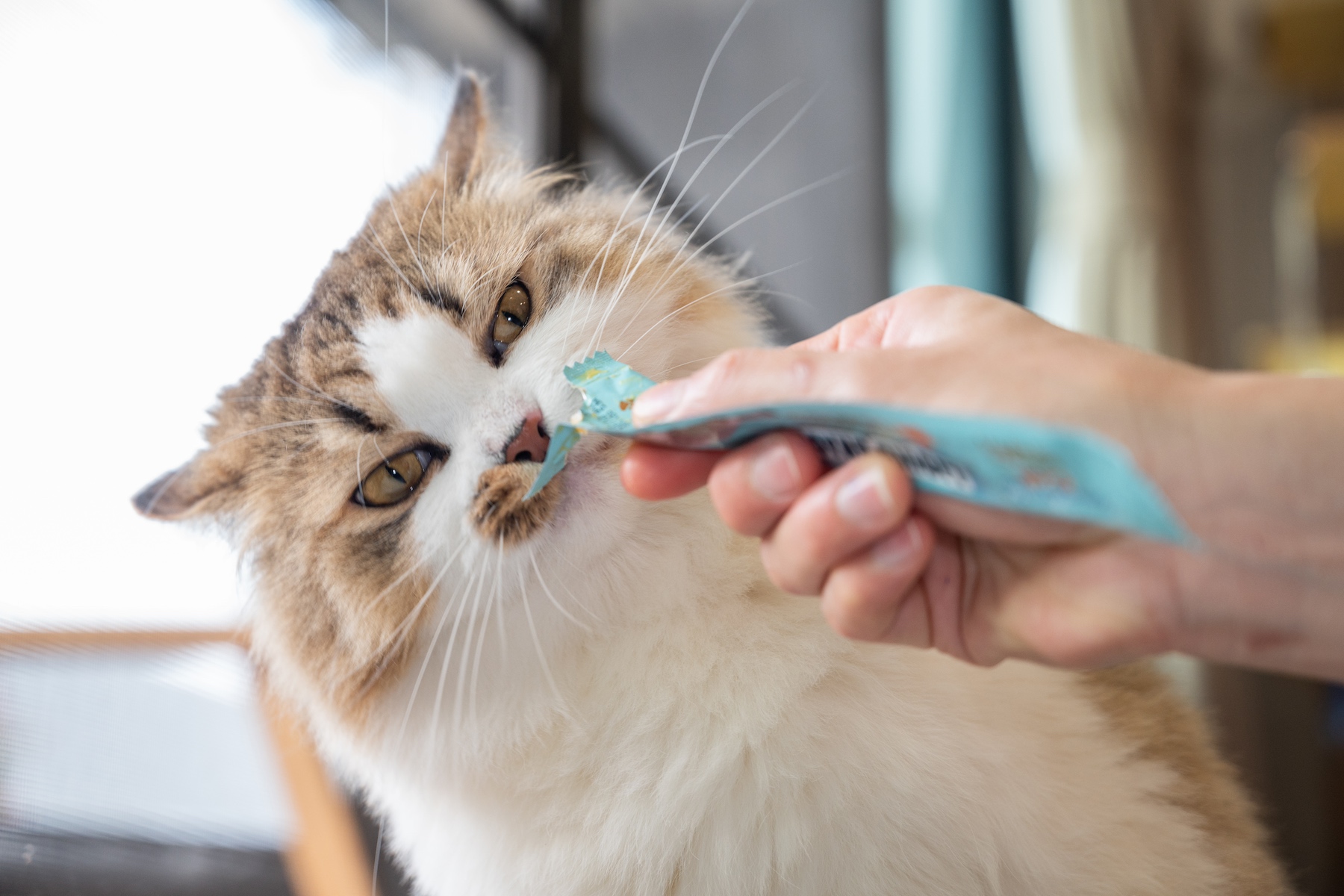
If your pet is microchipped, insurance will be ฿2,500–7,000 per year, while pet food rarely costs more than ฿500 a month.
To keep costs down, consider trying different pet food brands. This will depend on your particular pet, though, since some are fussy eaters, and others have medical dietary requirements. Buy bulk online if you have enough space to store several months’ worth of food.
Selling a pet in Thailand
There are no legal restrictions on selling pets in Thailand. You can advertise online on websites like Dogilike. Most dogs for sale are puppies, so there may be stiff competition if you are trying to sell an older dog.
If you are breeding dogs, you’ll want to ensure the puppies have the best possible life. Fitting them with microchips, vaccinating them, and getting the vet to provide a health certificate and blood test report will help you attract responsible buyers.
Rehoming a pet in Thailand
Most of Thailand’s shelters focus on rescued stray dogs and cats, and they may not have space for your pet. There are many Facebook groups where you can post pets for adoption, and of course, you can try to rehome your animal privately.
Please take care to vet any potential adopters, as some gangs have unethical intentions for purchasing pets, such as fighting and dog meat trading.
Useful resources
- MyFriend app – learn about and find pet services in your area
- Pet-Friendly Guide to Bangkok – for pet owners living in Thailand’s capital
- Soi Dog Foundation – nonprofit organization dedicated to protecting Thailand’s dogs
